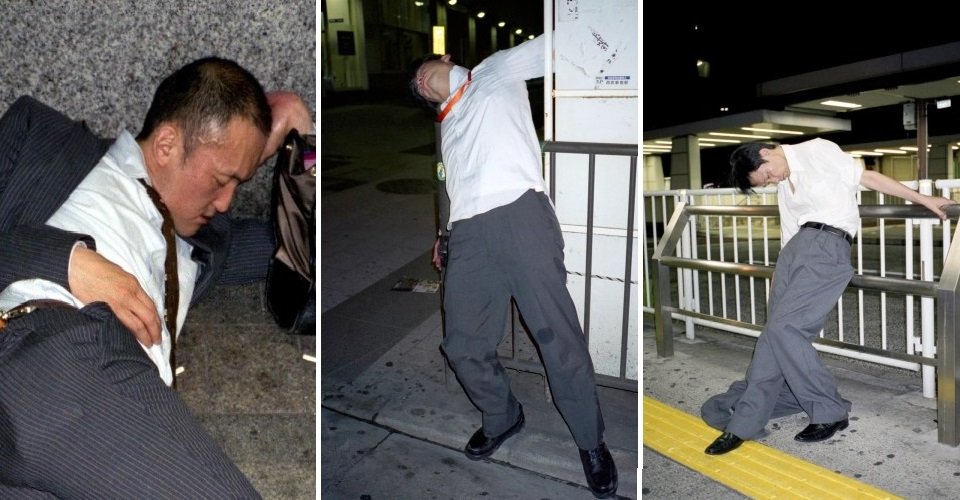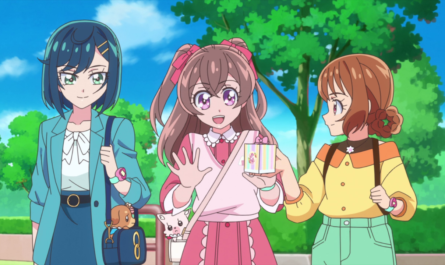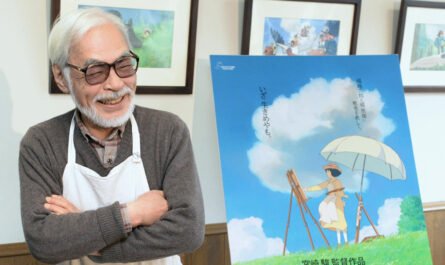Sleeping on the street is socially satisfactory in Japan, where daily extra time is typical.
In Japan it’s totally ordinary to work 60 hours every week. Apparently, this culture of diligence has been around for quite a long time, yet it appears to have gotten more highlighted since the finish of WW2. Around then-Prime Minister Shigeru Yoshida urged Japan’s organizations to remunerate extended periods of time to reboot the country’s economy. What’s more, many years after the fact, and this culture of difficult work emotionlessness actually holds influence.

Today, the hard working attitude of the normal salaryman is undesirable, verging on perilous. The nation is right now confronting an uptick of cardiovascular breakdowns and self destruction, which has induced various administrative endeavors to urge individuals to go on vacation.
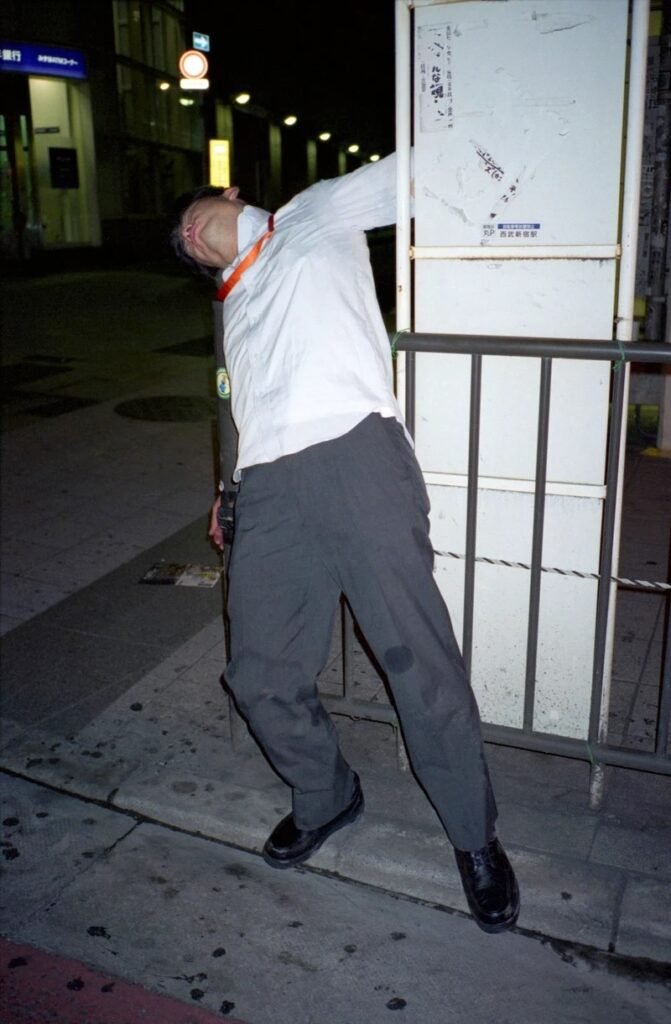
In any case, you don’t need to look far to see the impacts of exhaust on Japan’s corporate representatives. As photographic artist Pawel Jaszczuk has tracked down, it’s simply a question of strolling the roads nightfall. Initially from Poland, Pawel lived in Toyko for a long time, where he gathered photographs of depleted specialists snoozing in the city. Addressing VICE, he clarified his theory behind the photographs and revealed to us how Japanese local people have reacted to his fairly savage interest.
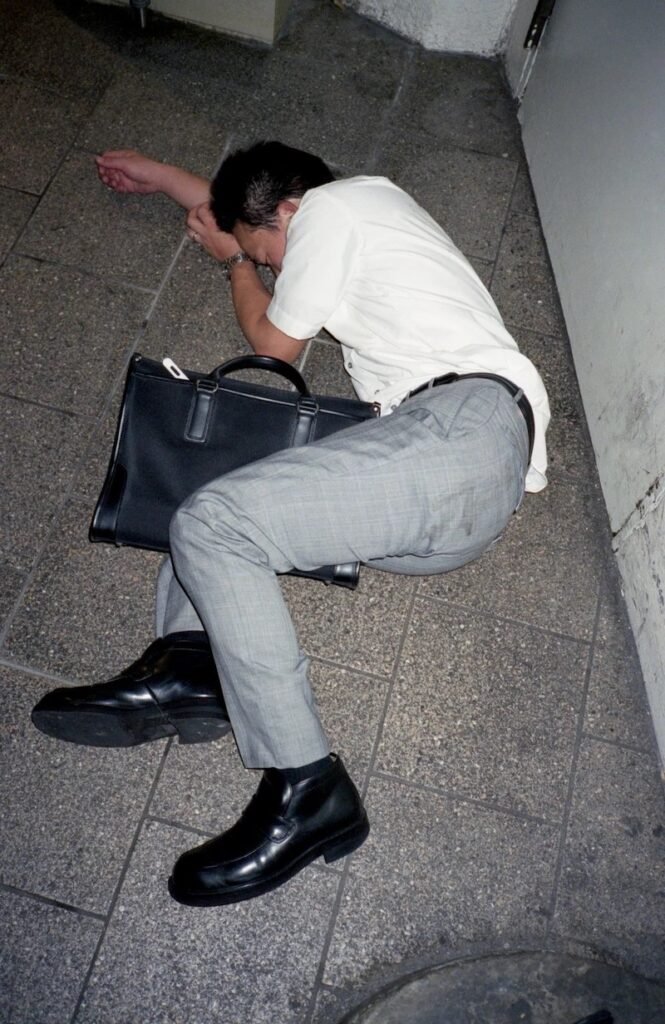
Bad habit: Hey Pawel, I’ve been considering the number of these individuals are snoozing on the grounds that they’re drained and the number of are sleeping since they’re plastered. How could you understand what you were catching?
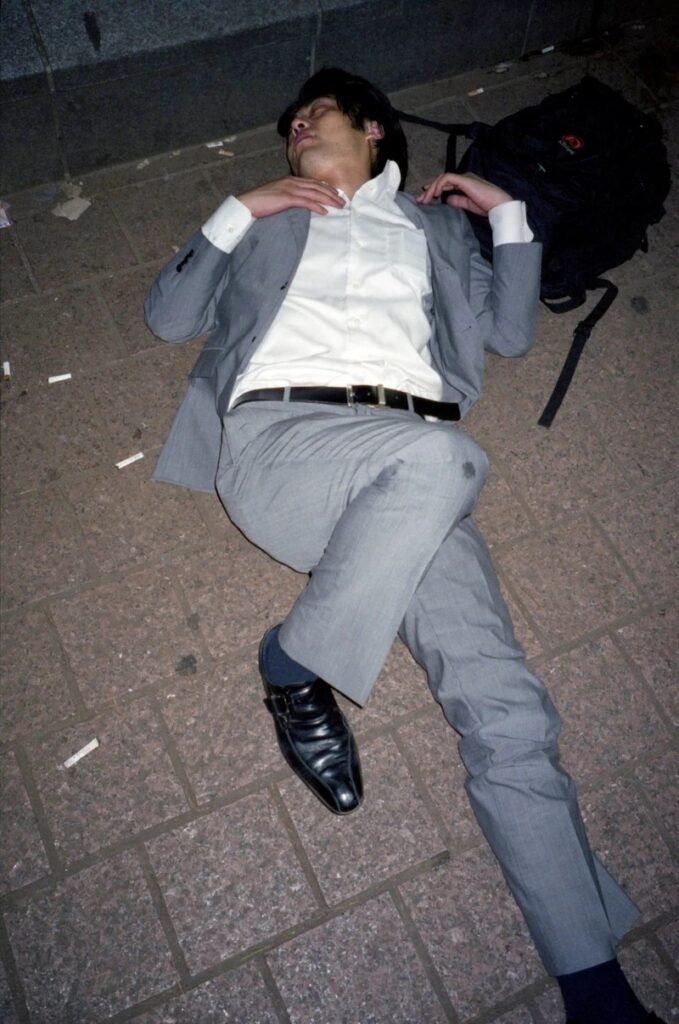
Pawel Jaszczuk: Well I was never 100% sure. Some of them have presumably had a couple of beverages, however the majority of them were so drained they just nodded off.
How would you figure these folks would react to seeing the pictures of them dropped on the ground?
I continue to ask myself that as well, and genuinely I have no clue. My thought isn’t to affront anybody. I need them to realize that I’m battling with them. Possibly it really is ideal that there was such a hole between when the photographs were taken and when they were distributed. It was likely the correct planning—some of them may have grown up, or moved away.

When were these photographs taken?
I took the photographs somewhere in the range of 2008 and 2010, however we distributed the book in 2018. On the off chance that you go to Japan, it’s regular to see money managers dozing in the city, frequently close to the principle train stations. It’s the same old thing. However, I needed my venture to be unique, so it took me around two years to discover my “models.” I rode my bicycle around consistently. The greatest days were Thursdays and Saturdays. I was looking cautiously, on the grounds that I needed decent, gorgeous salarymen in fascinating postures.
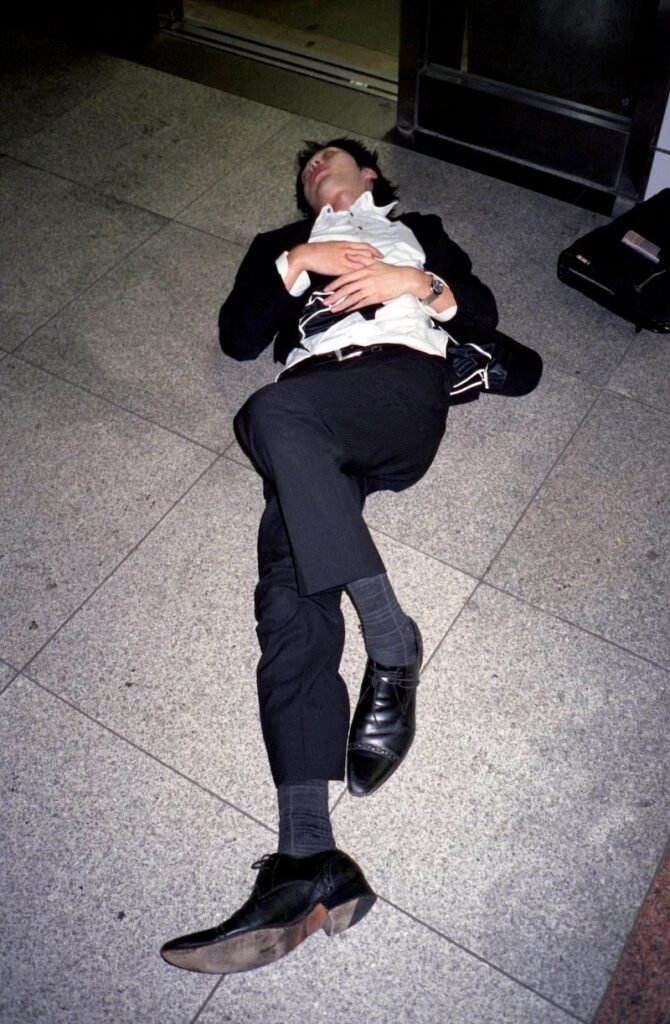
For what reason did you decided to take and organize the photos to look like a style article, with the title “High Fashion”?
I need to shake my watcher. I need to incite them to contemplate what was happening in the public arena. Despite the fact that the salaryman is firmly connected with Tokyo, the pictures uncover more about how we’re being utilized consistently by enterprises and entrepreneur frameworks. I need individuals to see the photographs and think, would we truly like to wind up like this? Is it accurate to say that we are simply being utilized?
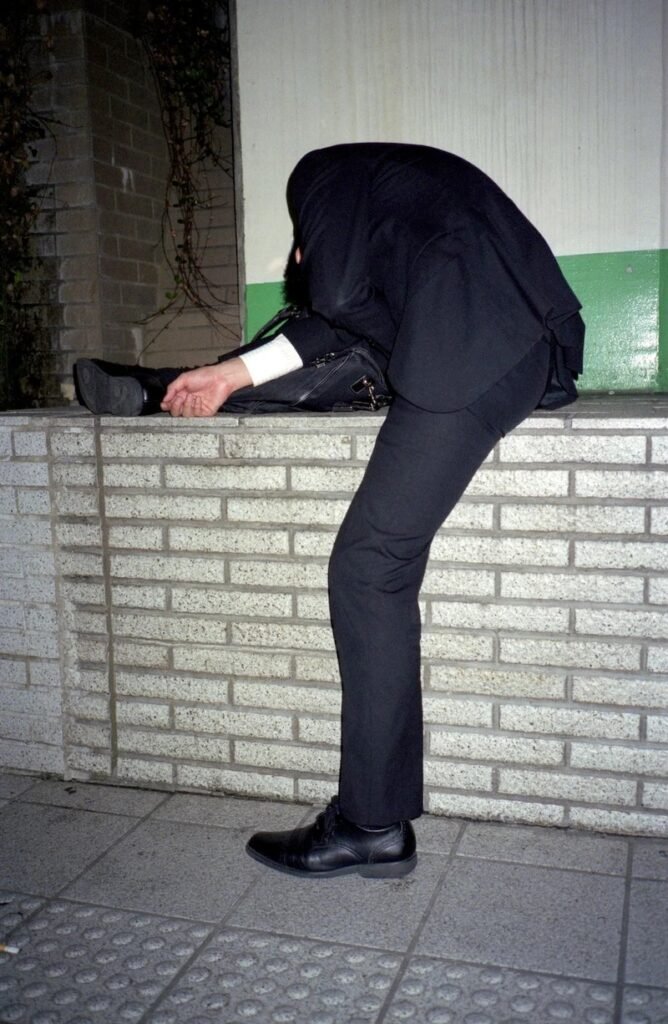
Have you noticed a contrast between how Western crowds have reacted to this arrangement contrasted with Japanese crowds?
By and large, I got an exceptionally certain reaction in Japan and I think the message was generally welcomed. My photographs are only an illustration of how things are in Japan. In Japanese culture you are simply no one. You could buckle down, and afterward the following day you’d get terminated. It’s right around a commitment that at evening you go out with your chief or partners. At that point the following day you’re back to work, and there’s that distance between everybody once more. They carry on more like machines, instead of people. My Japanese crowds didn’t get outraged by any means—they comprehend what I’m doing and they support me. My Japanese spouse, for instance, regardless of whether she sees these individuals on the road consistently, she never truly contemplates it. It’s simply there, and part of day by day life. It’s an alternate perspective, contrasted with Western crowds who feel it brings up more issues. It’s socially adequate in Japan to nod off in the city. Burglary is uncommon, and it has a sense of security. Elsewhere, resting on the road would be unsatisfactory and risky however Tokyo is an alternate planet. The standards are totally awesome.

Over the most recent couple of years, Japan has executed guidelines around working hours, including the “Work Style Reform Law.” Have you seen any change in culture since?
A great deal of the significant changes aren’t in real life yet, yet it’s acceptable they need to accomplish something. In any event individuals are beginning to discuss it. The Prime Minister for instance comes from an exceptionally rich family—he has no clue about what work is. These new changes may very well be a touch of purposeful publicity, yet I don’t think anything has truly improved at this point.
What do you think has worked with this extreme work space, that is so selective to Japanese culture?
From what I’ve assembled from my examination and living there, it comes down to history. After the US obliterated Hiroshima and Nagasaki, Japan acquired cash and in under 20 years, got perhaps the biggest economy on earth. Furthermore, I think this persevering society has recently stuck.
At long last, I’m interested about how you actually see the morals of capturing oblivious individuals. To you, how could this be not somewhat savage?
Well despite the fact that these photos were taken openly spaces, I get it’s still somewhat savage. I think photography is consistently somewhat ruthless, yet that is not a pardon. This marvel is basic to the point that Japanese individuals become accustomed to it. My pictures have made a conversation among Japanese residents and I imagine that is something to be thankful for. Something isn’t right, and Japanese individuals are not, at this point close-lipped regarding it.

